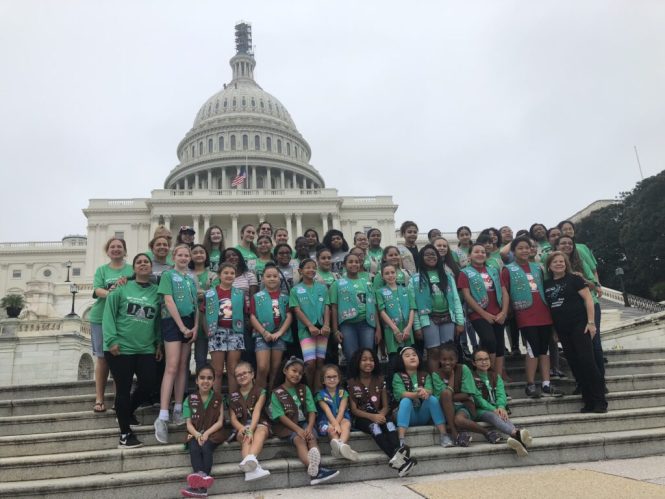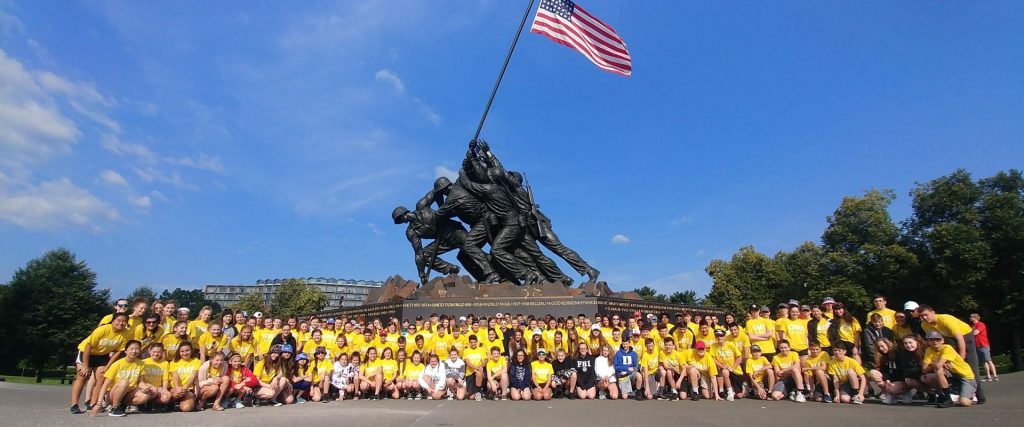

Planning an Educational Trip to Washington DC is an exciting undertaking, offering students a unique chance to immerse themselves in American history, culture, and politics. But with so much to see and do, ensuring a smooth and educational experience can feel overwhelming. This thorough guide will equip you with the essential steps to plan a achievementful educational trip to our nation’s capital, transforming a potential logistical nightmare into an enriching adventure. We’ll cover everything from defining your trip’s objectives and budgeting effectively to selecting appropriate accommodations and designing engaging itineraries. By the end of this guide, you’ll be ready to confidently plan an unforgettable educational trip to Washington D.C. for your students.
Defining Your Educational Trip Objectives
Before embarking on the planning process, clearly define the educational objectives of your trip. What specific knowledge or skills do you hope your students will gain? Are you focusing on American history, government, art, or science? Defining these objectives will help you create a targeted itinerary and select pertinent activities. For example, a trip focused on the American Revolution might include visits to historical sites like Mount Vernon and the National Archives. A trip focused on government could involve visits to the Capitol Building and the Supreme Court.
Aligning Activities with Learning Objectives
Once you’ve established your objectives, determine specific activities that directly support your objectives. This might involve guided tours, museum visits, workshops, or even interactive simulations. Ensure every activity has a clear learning outcome and contributes meaningfully to the overall educational experience. Consider incorporating pre-trip and post-trip activities to enhance learning. Pre-trip activities could include study projects or preparatory reading; post-trip activities could involve presentations, essays, or reflective journals.
Related Post : Content Ideas For Travel Agency
Engaging Students in the Planning Process
Engaging students in the planning process can foster a sense of ownership and excitement. Involve them in the selection of activities and destinations, allowing their interests to shape the trip’s itinerary. This participatory approach enhances their learning experience and ensures their active engagement throughout the trip. Consider establishing a student committee responsible for facets of the planning process.
Budgeting and Funding Your Educational Trip
Budgeting is crucial for a achievementful educational trip. Begin by estimating the costs associated with transportation, accommodation, meals, activities, and other potential expenses. You may need to factor in costs for visas, travel insurance, and any necessary medical supplies. Consider various funding sources, including school budgets, fundraising events, grants, and parental contributions. study funding opportunities available to educational institutions and community organizations.
Creating a Detailed Budget Breakdown
Create a detailed budget breakdown listing each expense category and associated costs. This will offer a clear picture of the overall budget, helping you determine potential areas for savings or additional funding needs. Regularly monitor your expenses to track actual spending against your projected budget. Maintain meticulous records of all transactions and receipts.
Exploring Diverse Funding Sources
Explore various funding sources beyond school budgets. This could involve organizing fundraising events like bake sales, car washes, or talent shows. study grants and scholarships available for educational trips, reaching out to organizations that support student travel and educational initiatives. Consider involving parents in fundraising efforts by suggesting contribution schemes.
selecting Accommodations and Transportation
Choosing suitable accommodations and transportation are vital elements of trip planning. Consider factors like proximity to key attractions, safety, and the overall comfort of your students. For accommodation, hotels, hostels, or even university dormitories could be options, depending on your budget and group size. If considering transportation options, buses, trains, or even a combination can be viable, weighing costs, comfort, and travel times.
Evaluating Accommodation Options
Evaluate accommodation options based on factors such as proximity to educational sites, cost-efficacy, safety attributes, and overall suitability for students. Ensure adequate sleeping arscopements and access to necessary amenities. Consider securing rooms with group discounts and inquire about special rates for educational groups. Check reviews from previous groups to assess the quality and suitability of accommodations.
Choosing the Right Transportation
select transportation that is cost-effective, safe, and comfortable for your students. Consider factors such as travel time, luggage storage, and accessibility attributes. study charter bus companies, train schedules, or even explore carpooling options if feasible. Prioritize safety attributes and ensure adherence to pertinent transportation regulations.
Designing an Engaging Itinerary
Crafting a detailed itinerary is essential for a achievementful educational trip. Structure the itinerary based on your learning objectives and consider pacing to avoid overwhelming students. Include a mix of guided tours, hands-on activities, and complimentary time to allow for exploration and relaxation. Include educational workshops, interactive sessions, or guest lectures to enhance the learning experience.
Integrating Educational Activities
Integrate educational activities throughout the itinerary. This could involve guided tours of historical sites, museums, or government buildings. Include interactive sessions, workshops, or guest lectures to enhance understanding and engagement. Incorporate opportunities for student-led discussions, debates, or presentations to foster critical thinking and communication skills.
Scheduling Downtime and Relaxation
Incorporate downtime into the itinerary to allow students to rest, relax, and process information. Include breaks for meals, complimentary time for personal exploration, or even opportunities for recreational activities. Ensure a balance between structured learning activities and unstructured relaxation to promote well-being and prevent burnout.
Pre-Trip Preparations and Post-Trip Reflections
Thorough pre-trip preparation and thoughtful post-trip reflections are crucial for a achievementful educational experience. Pre-trip activities could include orientation sessions, study projects, or readings that offer background information on the trip’s destinations. Post-trip activities might include presentations, essays, or group discussions to solidify learning and share experiences.
Conducting Pre-Trip Orientation
Conduct a pre-trip orientation session to prepare students for the trip’s itinerary, logistics, and expectations. offer them with essential information such as packing lists, safety instructions, and emergency contact information. Encourage students to ask querys and address any concerns they may have.
Facilitating Post-Trip Reflections
Facilitate post-trip reflection activities to consolidate learning and encourage critical thinking. This could involve student presentations, reflective essays, group discussions, or the creation of collaborative projects. Encourage students to share their experiences, discuss insights gained, and connect their learning to broader contexts.
Planning an educational trip to Washington D.C. requires careful consideration of your objectives, budget, and group needs. By following the steps outlined above, you can create a memorable and enriching experience for everyone involved. Remember to book accommodations and tours in advance, especially during peak season. Don’t hesitate to customize your itinerary to optimal suit your group’s interests and learning styles. Start planning your educational adventure to Washington D.C. today!